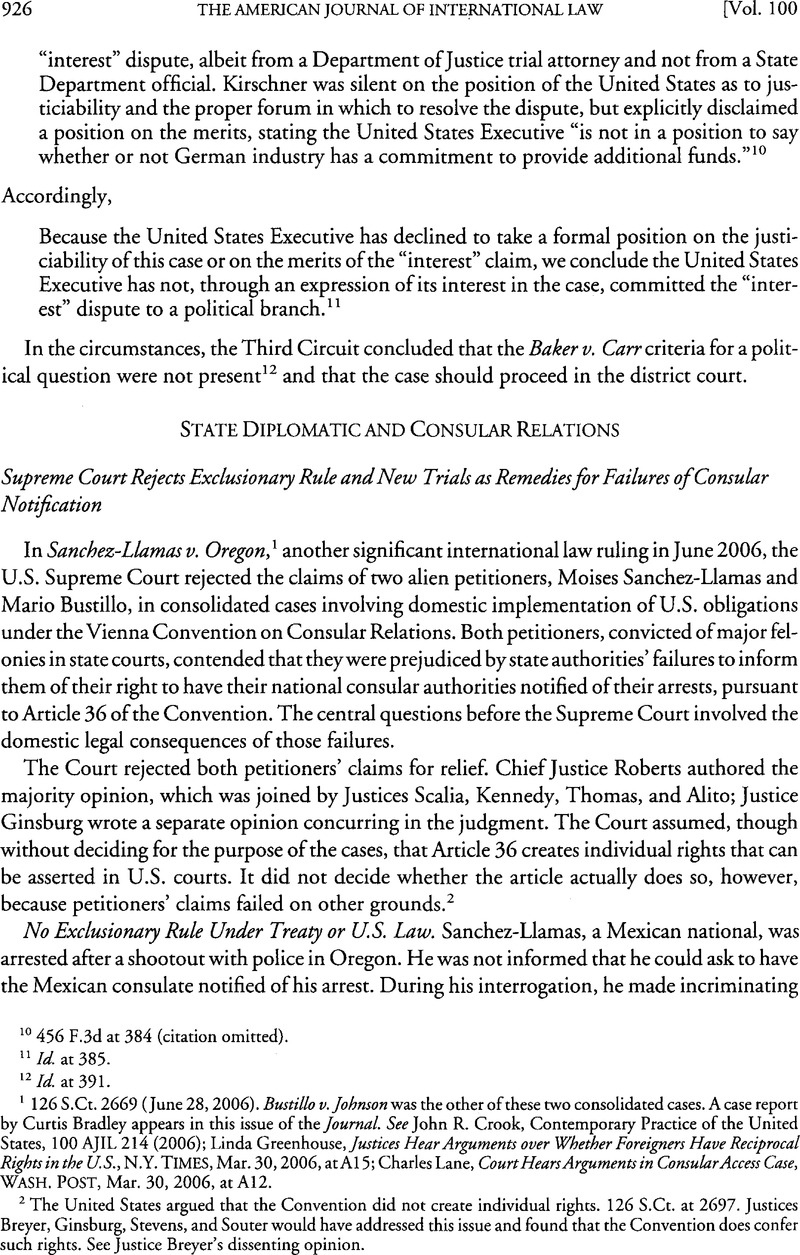No CrossRef data available.
Published online by Cambridge University Press: 10 March 2017

1 126 S.Ct. 2669 (June 28,2006). Bustillo v. Johnson was the other of these two consolidated cases. A case report by Curtis Bradley appears in this issue of the Journal. See John, R. Crook, Contemporary Practice of the United States, 100 AJIL 214 (2006)Google Scholar; Linda, Greenhouse, Justices Hear Arguments over Whether Foreigners Have Reciprocal Rights in the U.S., N.Y. Times, Mar. 30, 2006, at A15 Google Scholar; Charles, Lane, Court Hears Arguments in Consular Access Case, Wash. Post, Mar. 30, 2006, at A12.Google Scholar
2 The United States argued that the Convention did not create individual rights. 126 S.Ct. at 2697. Justices Breyer, Ginsburg, Stevens, and Souter would have addressed this issue and found that the Convention does confer such rights. See Justice Breyer’s dissenting opinion.
3 Id. at 2678 (citations omitted).
4 Id. at 2679.
5 Id. (citations omitted).
6 Id. at 2680-81 (citations omitted).
7 Avena (Mex. v. U.S.), 2004 Icj Rep. 128 (Mar. 31); see Sean, D. Murphy, Contemporary Practice of the United States, 98 AJIL 364 (2004).Google Scholar
8 523 U. S. 371 (1998) (per curiam).
9 126 S. Ct. at 2682-83 (citations omitted).
10 Id. at 2683 (citation omitted)
11 LaGrand (F.R.G. v. U.S.), 2001 ICJ REP. 466 (June 27).
12 126 S.Ct. at 2683.
13 Id. at. 2683–85 (citations and notes omitted).
14 Id. at 2685.
15 Id. at 2686.
16 Id. at 2687–88.
17 Id. at 2686 n.6 (“In fact, Bustillo has conceded that his ‘attorney at trial was aware of his client’s rights under the Vienna Convention.’”).
18 Id. at 2691 (Breyer, J., dissenting) (citations omitted).